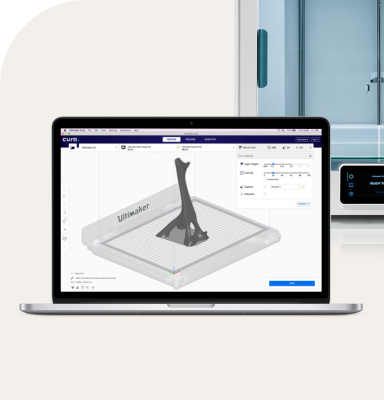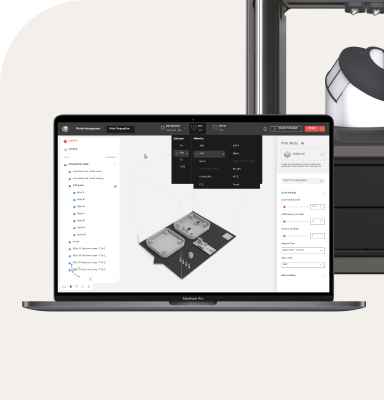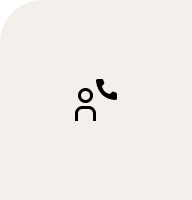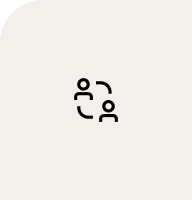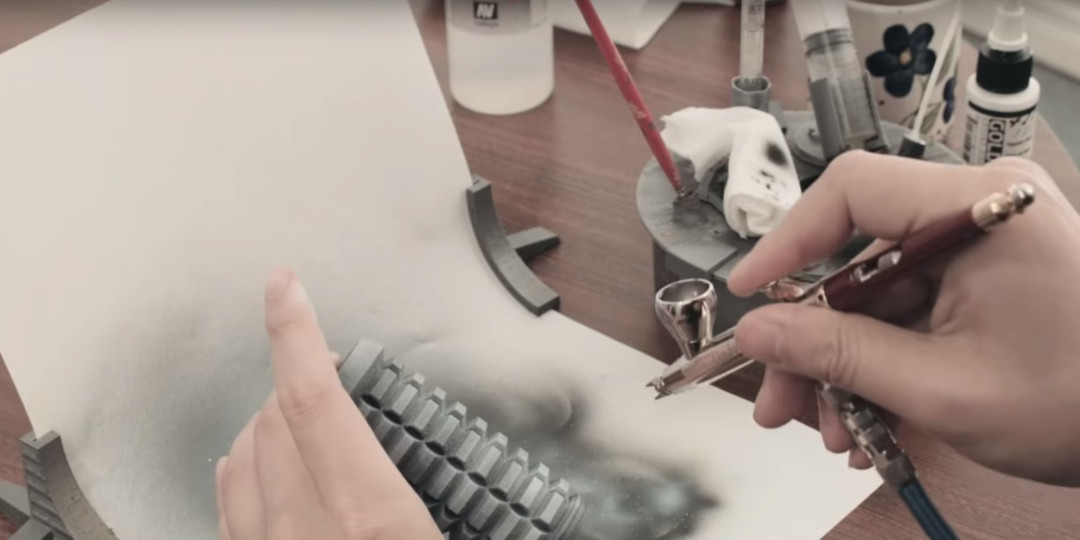In last month’s blog I wrote about FFF 3D design, printing methods and philosophy. This month, I hope to share some experiences in painting them.

Painting 3D-printed models
Jacky Wan (aka Valcrow) writes a guest-blog for us every month about his 3D printing adventures! This month's guest blogs is about painting 3D models. Painting 3D-printed models is a great way of adding detail and production value to your models. Often making the difference between a ‘cool print’ and a piece of art.
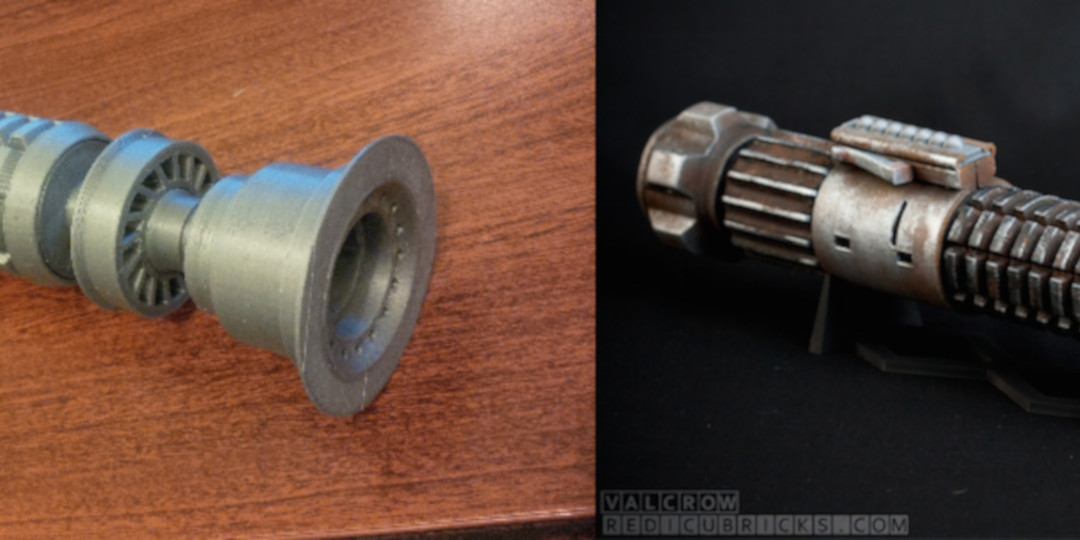
Design Methodology
Each step of the process has a cascading effect on the whole. If your model is not designed well, it will not print well. If it is not printed well, cleaning and painting will be difficult and tedious.
This lightsaber has been designed from the ground up with the intention of being painted, as a result, little cleanup was needed and all the parts were already separated so no masking was required. It is also important to consider the relief and surface details of your 3D design. The more surface relief, the easier it is to bring out details with paint via dry-brushing and washing. Sanding FFF prints is not a prerequisite for painting.
Tools
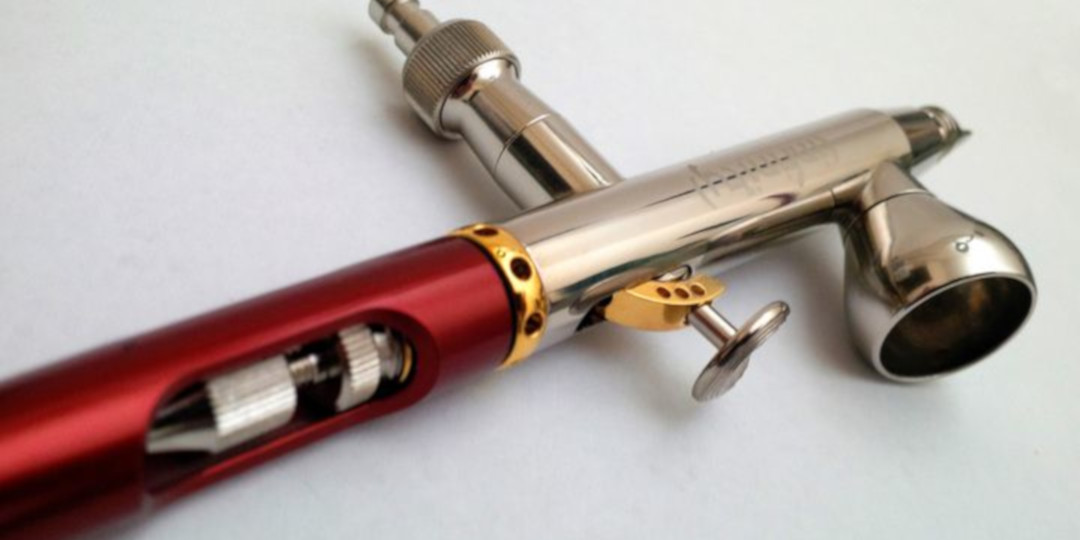
There is a vast array of painting supplies available online, at hobby stores, and even hardware stores. Paints are relatively inexpensive and surprisingly forgiving. So don’t be afraid to experiment.
The first decision to make is if you want to paint by brush, airbrush, or canned spray-paints. If you are unsure or have no experience painting, start with a brush. You can get everything you need for un- der 10$. Canned spray-paints are good for one-off solid colors, and an airbrush is good for a more consistent, cleaner finish at a high entry cost. I prefer an airbrush for versatility, speed and finish.
FFF exclusive painting issues
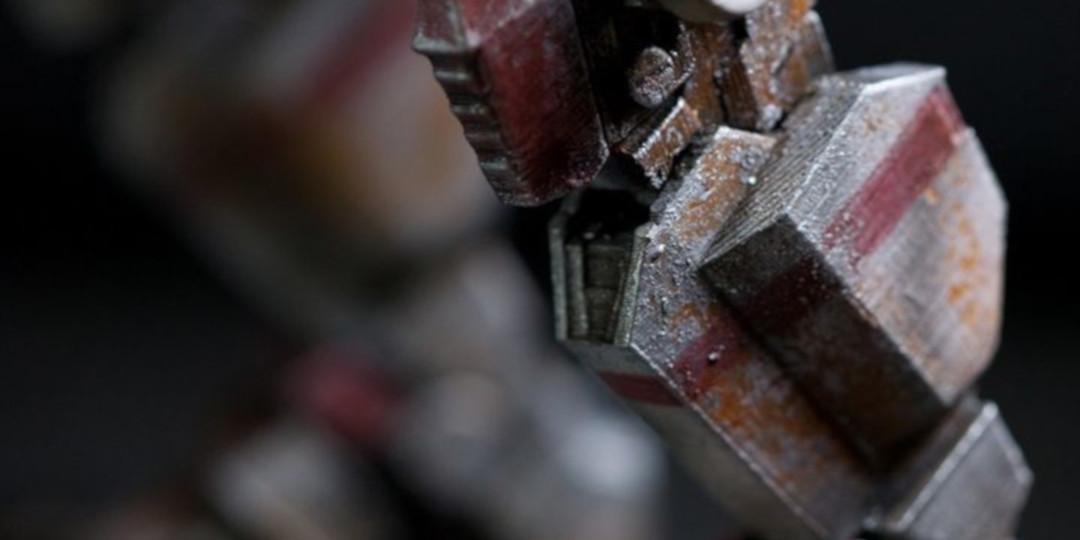
Painting on printed parts has its quirks, unlike the perfectly smooth injection molded parts, you have to deal with print lines and stripey top surfaces. This can be both a blessing and a curse when it comes to painting.
If you do washes, or thin your paints down too much You will find that the paint will want to run along the grooves of the print lines rather than the surface. This is a huge problem in controlling precisely where you want your paint to go. Using an airbrush for shading will help you avoid this problem. Filling and sanding your prints also help.
On the plus side, you can use those grooves to your advantage. They tend to add a small impression of texture detail similar to how noise gives the impression of sharpness in images. If orientated correctly, the print lines can also be made to look like machining marks.

Paints
There are hundreds of different paints out there. Split into a few groups based on their solvent. Enamels, oils, acrylics, and lacquers are the most common. They require different thinners and generally do not mix. Fortunately, they all work on PLA. (at least the ones I’ve tested) So, experiment!
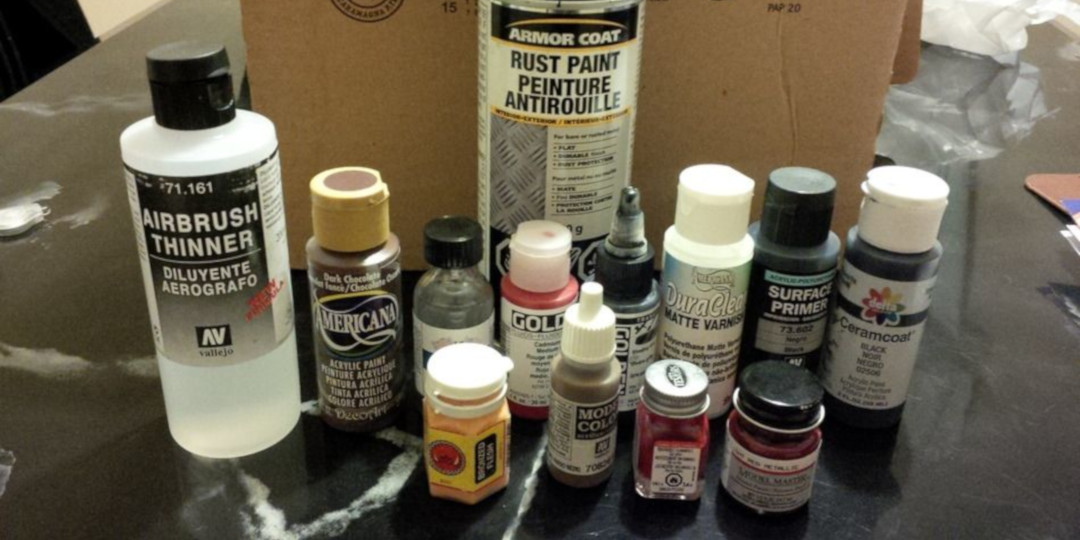
This is a cross section of the paints I use. Don’t be fooled by the brand loyalty. You don’t need to stick with one brand of paints, especially with acrylic. They all mix and work together. I have literally 1-2 bottles of every brand. Some work better than others, but they all work and mix.
I would highly recommend sticking with acrylics if you’re starting out. It thins and cleans with water, non-toxic and dries fast.
Painting is messy, as I’ve quickly discovered. There are a few things you can do to minimize the mess. I designed and built an airbrush station to keep all the ‘wet’ items in one place draining to a single reservoir. I also printed a paper holder as a backdrop for spraying. Painting can help your 3D prints, but your 3D prints can also help your painting.
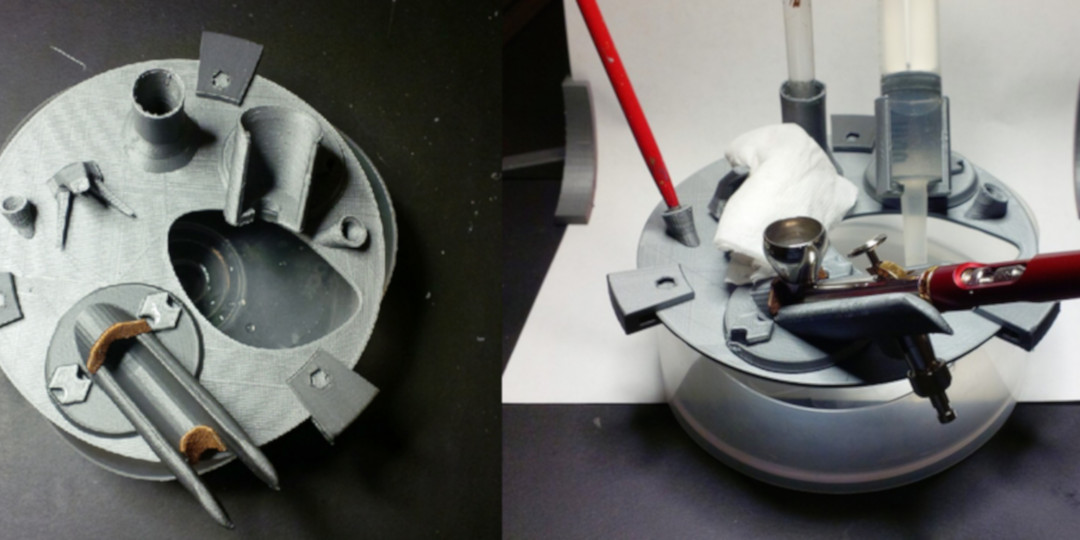
Examples
3D printing is all about customization. Painting your prints can really bring it to life and add another layer of personalization. Some of the pieces I’ve done here shows the dramatic difference a coat of paint can make.
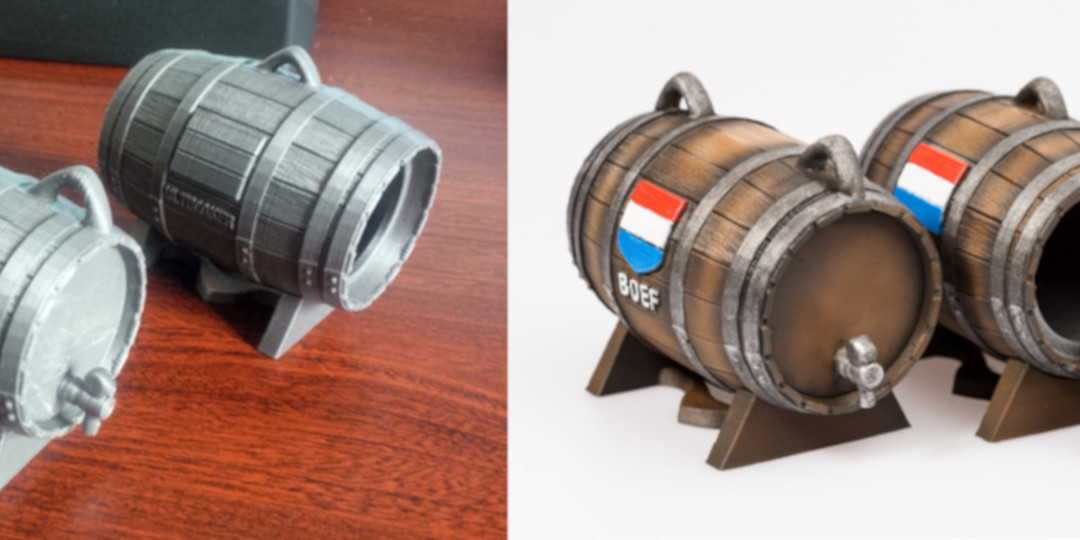
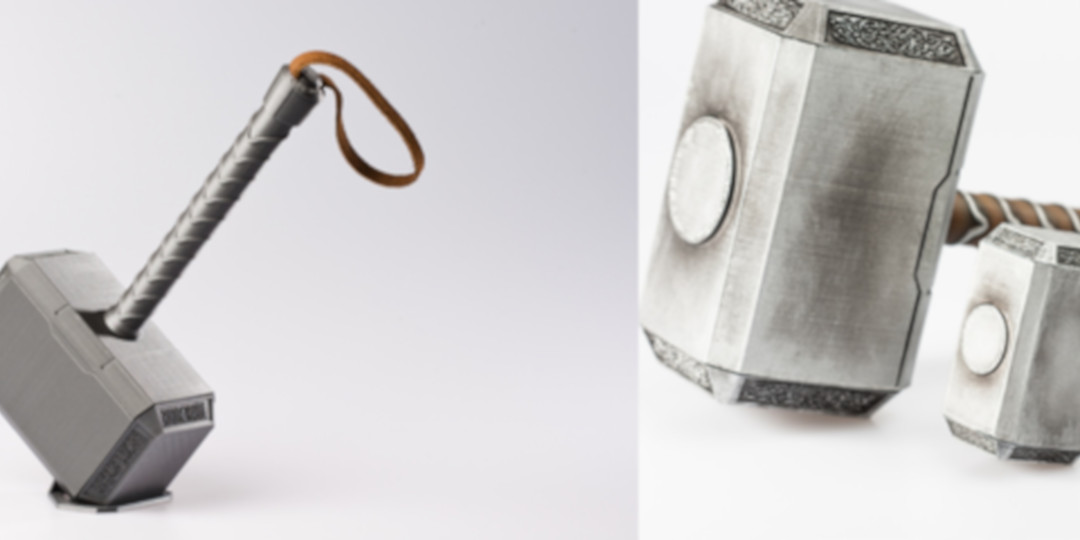
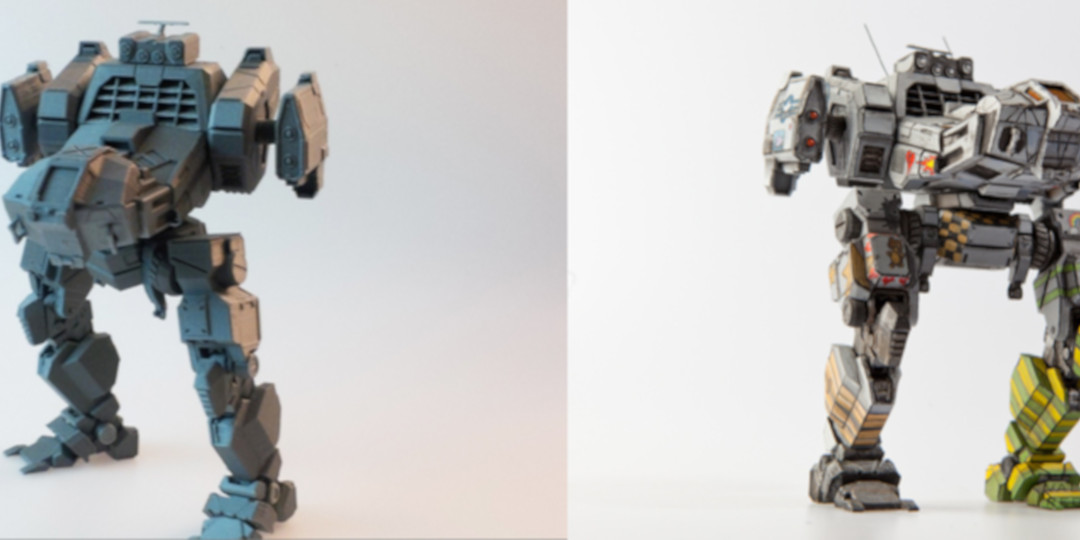
Painting the Lightsaber
Want to try your hand at painting your prints? Download the lightsaber from YouMagine, and follow along our video tutorial. You can also check out our written tutorial.
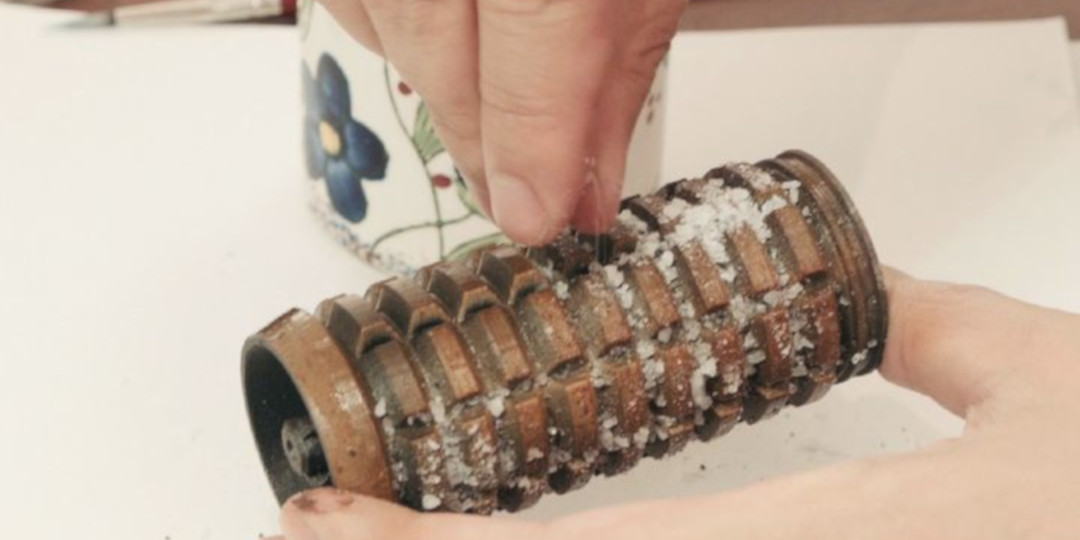
Painting is not just the ‘extra’ step at the end. It is considered throughout from design, to print. And it helps to bring everything together at the end. Give it a shot! Let us know if the video has been helpful to you.
If you want to look at more examples of painted prints, check out our website at redicubricks.com


